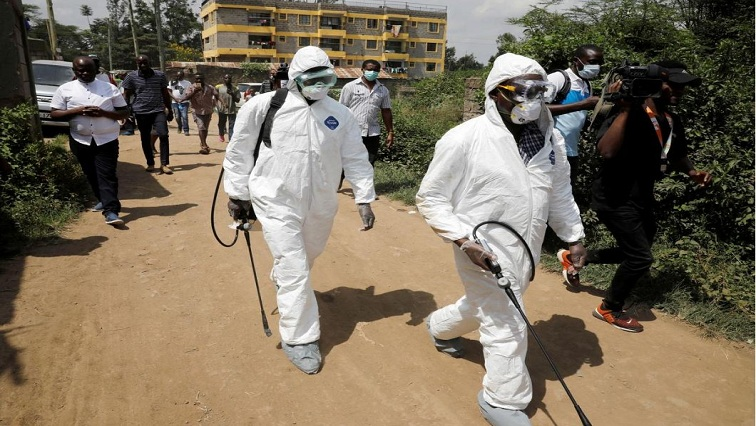The number of confirmed positive cases of coronavirus in Kenya now stands at 126, after four more people tested positive on Saturday, according to Health Cabinet Secretary Mutahi Kagwe.
The four were among 2 000 people who are currently in mandatory quarantine.
#KomeshaCorona pic.twitter.com/10jIfgkmZB
— Ministry of Health (@MOH_Kenya) April 4, 2020
A senior Kenya Airways official is among the four people who have died from COVID-19 in Kenya.
Captain Daudi Kimuyu, who was laid to rest on Saturday, evacuated Kenyans who were stranded in New York, with just hours before the city went under lockdown. He died on Wednesday, three days after he fell ill.
On Saturday, the Health Cabinet Secretary paid tribute to the retired Airforce Major, saying he paid the ultimate price.
In the video below, Kenya announces the full recovery of patient zero:
Kenya to produce its own protective gear for health workers
In March, Kenya projected that it’s confirmed COVID-19 cases would cross over to 100. The country had 50 cases at the time of the projection.
Kenyan Cabinet Secretary for Health Mutahi Kagwe said the country would start producing its own protective gear and that it was in talks with motor companies in the country to produce ventilators. This followed the donation by Chinese Billionaire Jack Ma of Personal Protective Equipment (PPEs) to all African countries.
The Ma Foundation’s donations include 1.1 million testing kits, six million masks and 60 000 protective suits and face shields.
The east African country said that it would be producing its own protective gears as it would be difficult to get the equipment from outside the country.
“There are more than 50 companies that are capable of providing some of these medical inputs. We started with sanitisers. Our textile sector has confirmed that they have that capacity (to produce),” said Kenya’s Cabinet Secretary for Trade and Industrialisation Betty Maina.
WHO warns of protective gear shortages
The World Health Organisation (WHO) has warned that shortages of personal protective equipment could leave frontline health workers at risk of contracting the disease.
“The chronic global shortage of personal protective equipment is now one of the most urgent threats to our collective ability to save lives. The WHO has shipped almost two million items of protective gear to 74 countries that need it most and we’re preparing to send a similar amount to a further 60 counties. But much more is needed. This problem can only be solved with international cooperation and international solidarity. When health workers are at risk, we are all at risk. Health workers in low and middle income countries deserve the same protection as those in the wealthiest countries,” said World Health Organisation’s Director-General, Tedros Adhanom.
In the video below, Kenya puts measures in place to restrict movement amid the COVID-19 outbreak:






